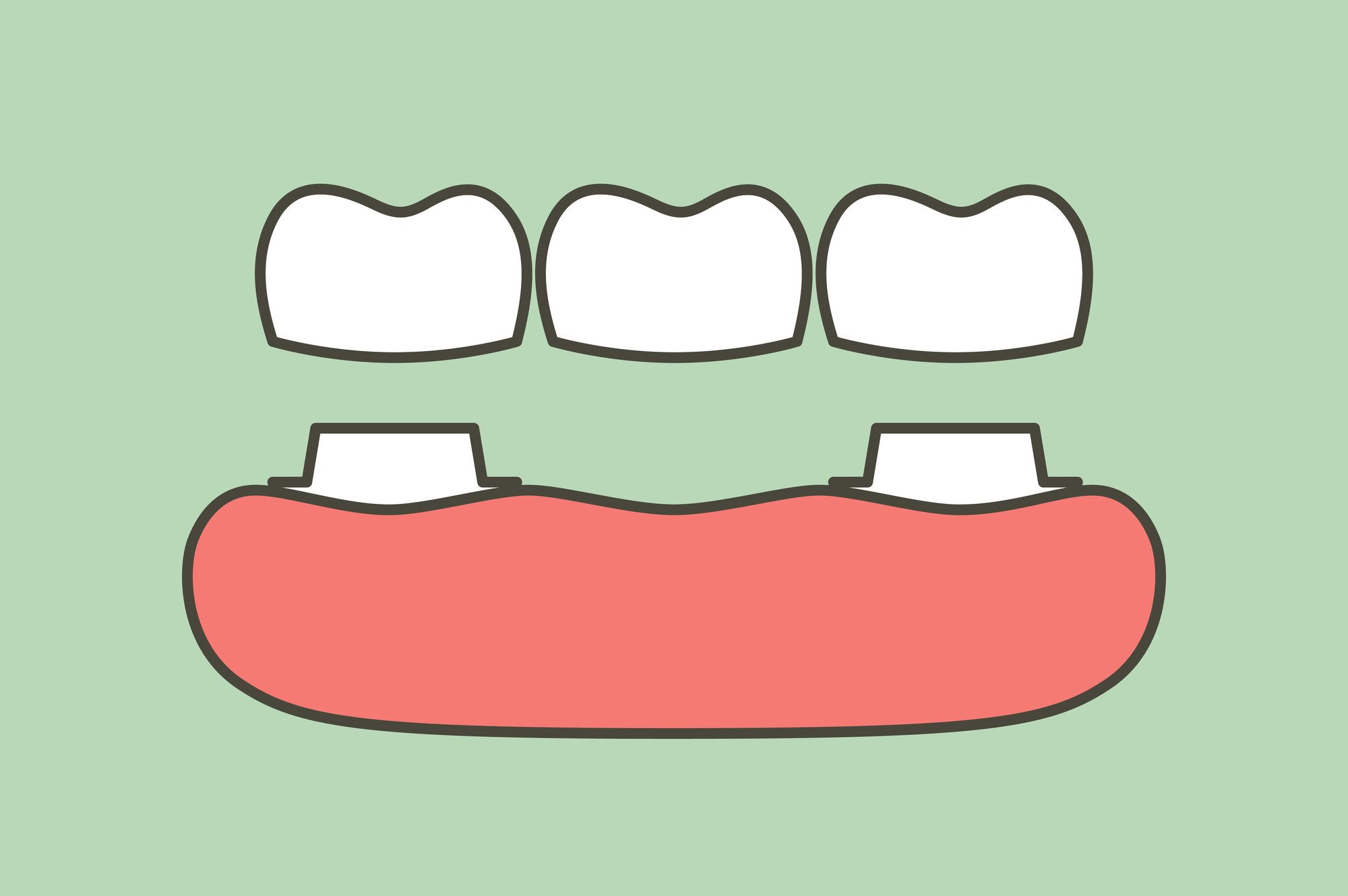
Though there are several options for replacing missing teeth, dental bridges are among the most popular restorative treatments. A traditional dental bridge—the most common type—is made up of two dental crowns with one, two, or three prosthetic teeth suspended in the middle. There are three other types of dental bridges: the Maryland bridge, cantilever bridge, and an implant-supported bridge.
Each bridge comes with its own set of advantages and disadvantages, but for this blog, we’ll focus on the traditional dental bridge.
Here are the pros and cons of traditional dental bridges:
Advantages of a Traditional Dental Bridge
A traditional dental bridge offers several benefits to patients with one, two, or three missing teeth in a row. Aesthetically, the bridge is carefully crafted by a dental lab technician so that it matches the rest of your smile perfectly. Only you and your dentist will know it isn’t real!
Oftentimes, missing teeth affect a person’s ability to chew and speak properly. Dental bridges restore those functions by permanently replacing those missing teeth. Although patients may want to reduce their consumption of sticky foods, there are no food restrictions associated with dental bridges.
When a person has a missing tooth, there is a high probability that the neighboring teeth will shift towards the gap. This can cause a domino effect throughout the mouth. dental bridges fill that gap to keep the rest of the patient’s teeth in proper position.
A traditional dental bridge may also help reduce jawbone deterioration which leads to facial atrophy, though dental implants are a more effective solution to this issue.
Finally, patients prefer dental bridges because they are fixed in the mouth, unlike dentures. This provides stability, security, and a simple cleaning process. Dental bridges can be treated just like your regular teeth—brushing twice a day, flossing daily, and visiting the dentist every six months.
Disadvantages of a Traditional Dental Bridge
When considering a dental bridge, it’s important to have all the facts—even the not-so-good ones! Thankfully, the disadvantages of a dental bridge are few and many of them are avoidable when you choose an experienced and trusted dentist.
The disadvantages of dental bridges include:
- Risk of decay under an ill-fitting crown
- Removal of enamel from the healthy neighboring teeth
- Risk of failure if the neighboring teeth aren’t strong enough
- Won’t last forever
- Don’t replace the tooth root
While dental bridges can last up to 15 years, they aren’t considered a permanent solution.
More Tooth Replacement Options
Not sold on a dental bridge? Continue your research by looking into other tooth replacement options like dentures and dental implants.
While dentures are a more affordable option, dental implants offer incredible benefits and last a lifetime. They’re both worth considering!
Restorative Dentistry in Woolgoolga
At Magic Smiles, we prioritize patient comfort and satisfaction. Our vision for a family-friendly dental practice means that your needs are more important than our profits. That’s why you can expect to be treated with the utmost respect and high-quality care.
When it comes to restorative dentistry, we offer dental bridges, dental implants, and dentures. Based on your unique dental situation, preferences, and budget, we will recommend your best option and simply leave the final decision to you.
Contact our friendly dental team today at (02) 6654-0650 to schedule your initial consultation.


